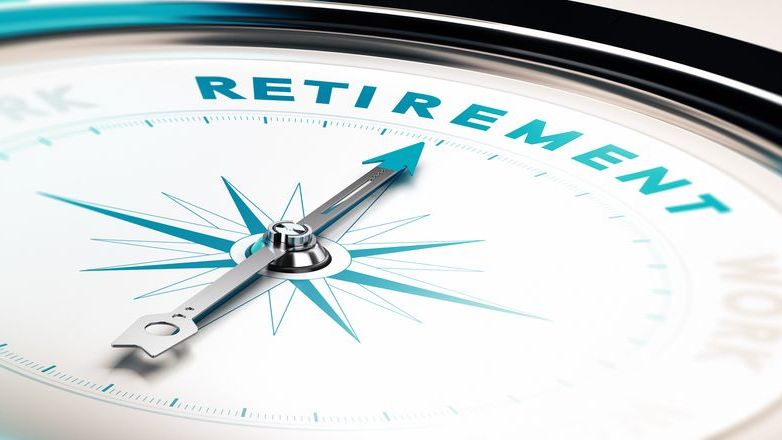Deciding when to retire is one of the most significant financial decisions you’ll make, and getting the timing right is important for the success of your nest egg. If you’re wondering “how do I know when it’s time to retire,” several key factors can guide you. Evaluating your retirement readiness involves assessing your savings, understanding your expected expenses and considering your health and lifestyle aspirations. By thoroughly examining these aspects, you can gain a clearer picture of when it’s financially time to retire.
Evaluating Your Financial Readiness
Figuring out when it’s time to retire starts with a close examination of the your finances. Taking stock of your retirement savings and how your money is invested is the first step in that process: How much money do you have in your retirement accounts, including 401(k)s and IRAs, as well as other savings? Furthermore, how is your money invested?
Another part of this step is to make sure that your investments are diversified and aligned with your risk tolerance and retirement goals. Regularly checking the performance of these investments can help you make necessary adjustments.
Estimating Your Retirement Expenses
Next, you’ll need to estimate your future retirement expenses. This will help you determine if you’re ready to retire, since it can dictate how much income you’ll need to generate. Consider your current lifestyle and how it might change in retirement. Factor in costs such as housing, healthcare, travel and daily living expenses.
Experts recommend that you plan on needing to replace between 70% and 90% of your pre-retirement income, although your estimated expenses may require a lower or higher income replacement rate. For example, T. Rowe Price recommends starting with a target replacement rate of 75%, and then adjusting it up or down by 1% for every percentage point that your savings rate was above or below the average contribution rate (8%). So, if you consistently saved 10% of your income in a 401(k) throughout your career, T. Rowe Price estimates that you should aim to replace 73% of your pre-retirement income.
Taking Stock of Your Sources of Income
Lastly, you’ll want to identify the various types of income sources you may have in retirement. These can include Social Security benefits, pensions, rental income, part-time work and withdrawals from your retirement savings. Understanding these sources will help you gauge how much money you will have available and whether it will be sufficient to meet your estimated expenses.
How to Know When It’s Time to Retire

After you’ve taken a close look at your current finances and assessed how they’ll change in retirement, consider your answers to these five questions. They may provide you with a clearer sense of when it’s the right time to retire:
1. How Long Will Your Money Last?
Understanding the longevity of your savings is fundamental to a secure retirement. Using online calculators or working with a financial advisor, calculate a potential safe withdrawal rate. Factor in your expected lifespan, inflation rates and market fluctuations to create a realistic projection.
For example, the 4% rule dictates that withdrawing 4% of your portfolio in year one of retirement and then adjusting subsequent withdrawals for inflation can ensure your portfolio will last 30 years. However, the 4% rule may be too high or too low for your income needs. So a more dynamic approach to account withdrawals could be a better fit.
2. Are You Debt-Free?
Being debt-free can significantly impact your retirement comfort. Pay off high-interest debts, like credit cards and loans, to avoid financial strain. If you have a mortgage, consider whether paying it off before retirement is feasible and beneficial for your overall financial health.
3. Will Your Income Streams Support Your Spending Needs?
Determining if your retirement income will meet your spending needs requires a detailed analysis of your finances. Start by listing all income sources, such as Social Security, pensions, retirement account withdrawals, annuity payments and part-time work. If your expenses exceed the total income you expect to generate, you may need to adjust your budget to reduce expenses. On the other hand, delaying retirement can help you build up your savings and increase your eventual Social Security benefit.
4. Do You Have a Plan for Healthcare?
Healthcare is a major expense in retirement. Make sure you have a comprehensive plan that includes Medicare, supplemental insurance and long-term care options. Fidelity Investments estimates that 65-year-olds who retired in 2023 will incur an average of $157,500 healthcare and medical expenses during the rest of their lives. Account for these possible medical costs and consider setting aside funds specifically for healthcare to prevent unexpected expenses from depleting your savings. If you’re younger than 65 and are considering retirement, you’ll need to secure private insurance until you become eligible for Medicare at 65.
5. Are You Emotionally Ready to Retire?
Emotional readiness is as important as financial preparedness. Reflect on how you will fill your time and find purpose without the routine of work. Engaging in hobbies, volunteering or part-time work can provide structure and fulfillment. Assess your social support network to make sure that you have connections that will keep you engaged and happy in retirement.
Bottom Line

Deciding when to retire is a deeply personal decision that requires careful consideration of both financial and emotional readiness. By evaluating your savings, estimating future expenses and understanding your income sources, you can gauge your financial preparedness for retirement. Additionally, being debt-free, having a robust healthcare plan and ensuring that your income streams will support your spending needs are important steps.
Retirement Planning Tips
- If you need help planning for retirement, consider working with a financial advisor. Finding a financial advisor doesn’t have to be hard. SmartAsset’s free tool matches you with up to three vetted financial advisors who serve your area, and you can have a free introductory call with your advisor matches to decide which one you feel is right for you. If you’re ready to find an advisor who can help you achieve your financial goals, get started now.
- SmartAsset’s retirement calculator can help you estimate how much income your retirement savings could generate each year and whether your savings are sufficient to meet your projected expenses.
Photo credit: ©iStock.com/Jacob Wackerhausen, ©iStock.com/skynesher, ©iStock.com/olm26250
Read the full article here
















